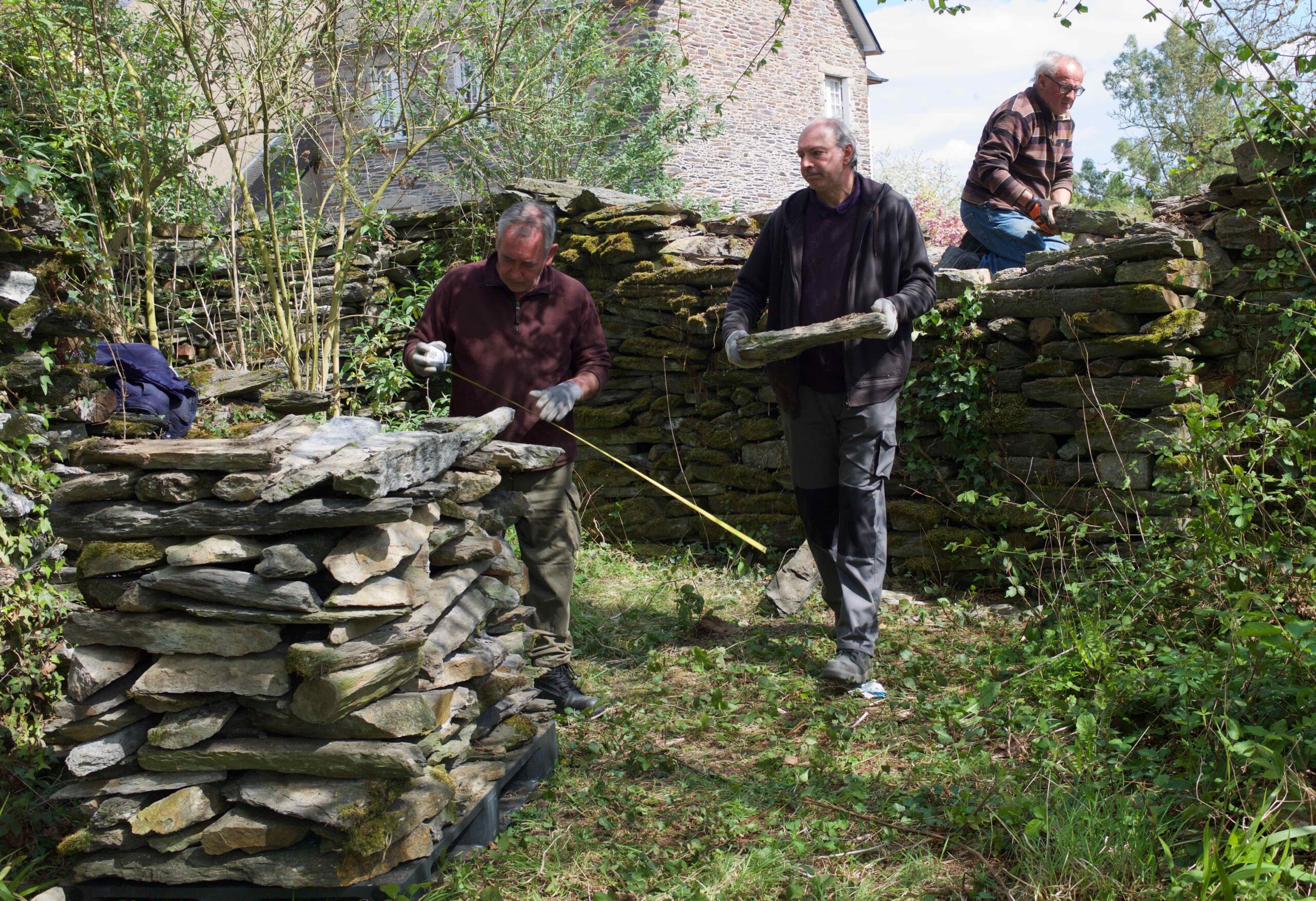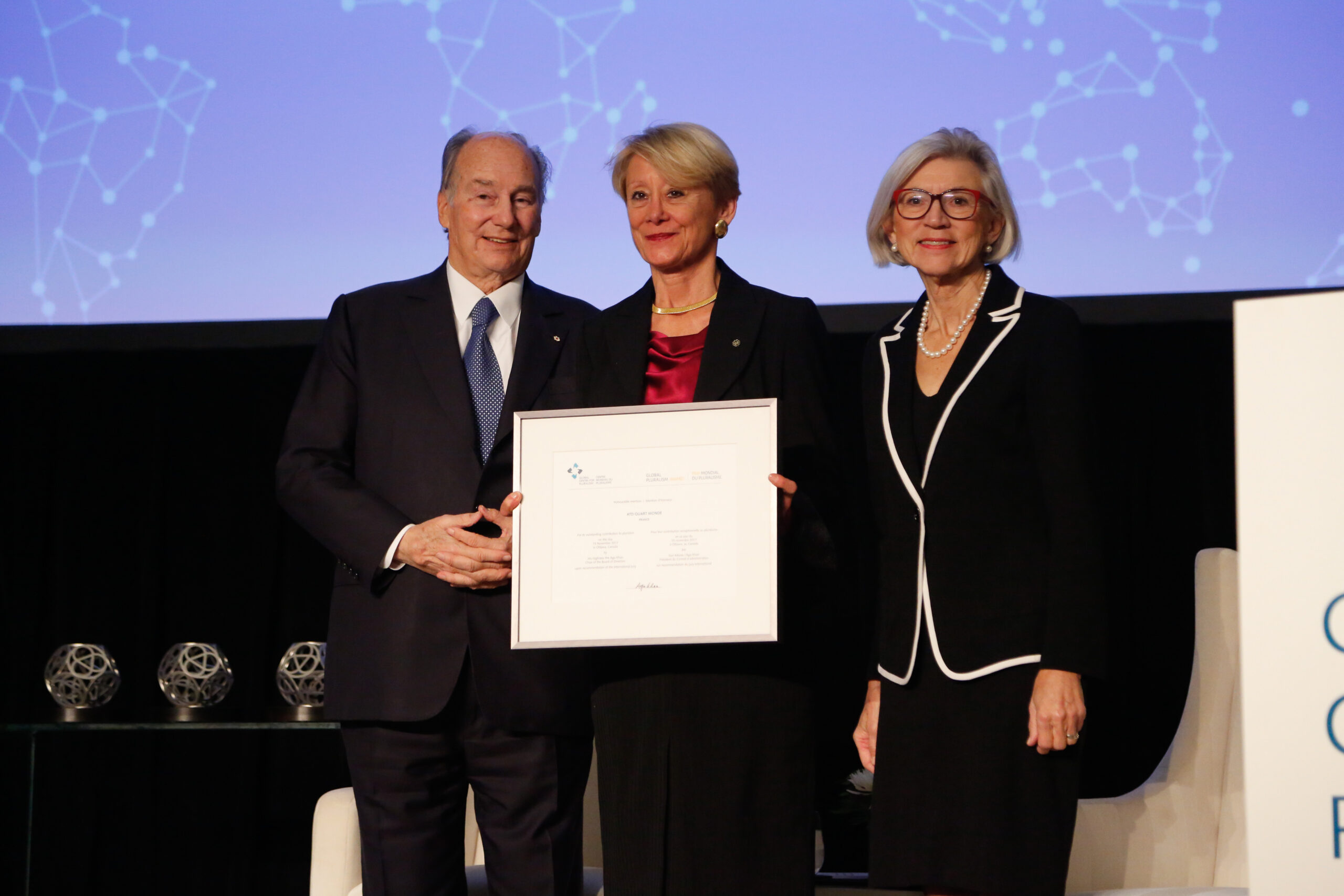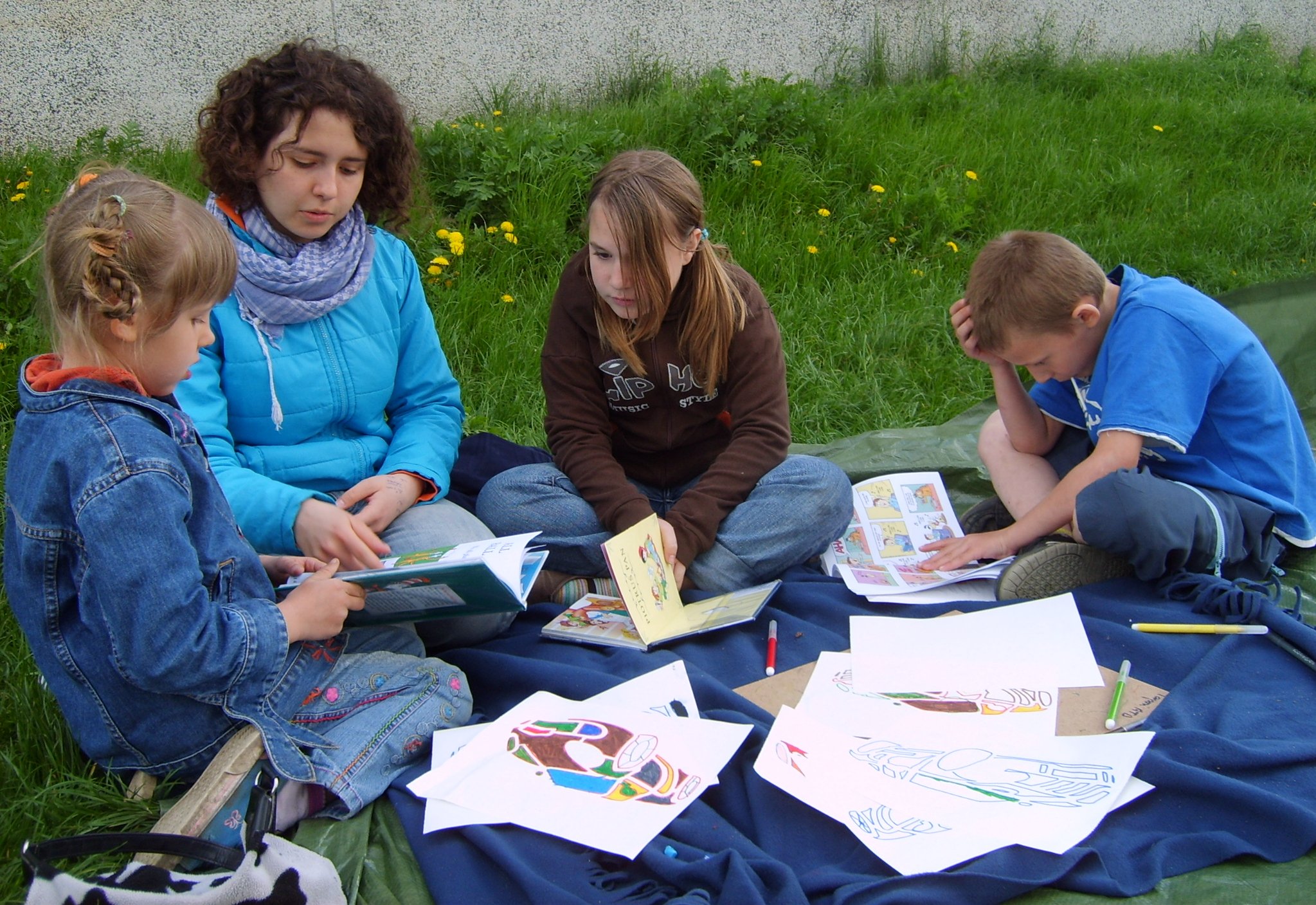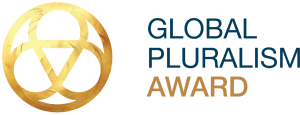Welcoming America
Welcoming America’s Story
When David Lubell was five years old, his parents sat him down and told him: Don’t talk to strangers. It’s a common refrain, but it led David to feel fear for the first time.
Today, decades after David received what he calls “the stranger danger talk,” the United States is experiencing the fastest immigration growth rate since the early 1900s. Also on the rise is anxiety and mistrust in communities with high rates of immigration, hate crimes targeting foreign-born residents, anti-immigration policies, and alienation between immigrants and long-term residents.
David was living in Tennessee when he realized that despite his state’s 400 per cent increase in immigration in the past decade, there was no widespread coordination of efforts to help immigrants. He also noticed that there was no effort to prepare host communities for the major demographic changes they were facing. David launched Welcoming Tennessee in 2006 to help immigrants become active members in their new society—with the support of their host communities. Now, Nashville, Tennessee, has grown to become an economic leader in this region. Civic and business leaders attribute this success to the city’s welcoming climate and successful integration of immigrants.
Welcoming Tennessee soon became Welcoming America, an award-winning non-profit organization that builds bridges between newcomers and long-time residents. The organization has developed a Welcoming Standard, which provides a comprehensive roadmap for immigrant inclusion. It encourages interactions between immigrants and their receiving community to build trust and help local leaders involve newcomers in the city’s planning. Today, Welcoming America has created more than 570 inclusive policies and programs to improve the lives of immigrants by helping them learn English, succeed at school, build a career, open a business or participate in civic life. Welcoming America has expanded to 380 communities across the United States, and has partnerships in Germany and Australia.
At the heart of the organization is the belief that when newcomers feel valued and are encouraged to participate in the social, civic, and economic fabric of their adopted hometowns, everyone benefits. Communities become better—more vibrant and more prosperous—when they embrace diversity and nurture the potential of their new residents.
Sawa for Development and Aid
Sawa for Development and Aid’s Story
In December of 2011, 22-year-old was visiting her family in Lebanon when she heard about the first 40 Syrian refugees crossing the border into Lebanon. She got into a car and drove to meet the refugees. After asking them what they needed, she sent a text message to everyone she knew, explaining the tragic situation and the families’ urgent needs. Her message spread, prompting hundreds of people to contact her with offers of donations or to volunteer.
By the end of 2011, Rouba Mhaissen had created Sawa4Syria, a grassroots youth-led initiative that was one of the first organizations in Lebanon dedicated to responding to the needs of Syrian refugees. The name Sawa means “together.” Soon, the organization expanded to become the non-profit organization Sawa for Development and Aid, which provides multi-faceted relief for Syrian refugees in Lebanon and, now, in the United Kingdom.
In addition to traditional humanitarian relief, which it provides in 18 tented camps to thousands of refugees, Sawa incorporates education and livelihood programming to help refugees become financially independent. In their free kitchen, run by Syrian and Lebanese volunteers, Sawa feeds more than 5,000 people on a daily basis. Their educational centre prepares Syrian children for entrance into Lebanese schools, and their cash-for-work programs employ around 50 refugees at any one time.
With more than 1.5 million Syrian refugees in Lebanon, tensions have risen between refugees and their host communities, an issue Sawa is addressing through education and outreach in Lebanon. All of Sawa’s programming is conceived, designed and implemented by refugees, which ensures that its work is directed at the issues that matter most to the people it helps.
When Rouba drove to meet the first Syrian refugees in 2011, she did not know that, six years later, she would have started an organization with a wide network of local and international partners that is meeting the needs of Syrian refugees in Lebanon and the United Kingdom. In 2011, she simply asked, “What do you need?” She discovered that, beyond humanitarian relief, they needed to be given a chance to contribute in meaningful ways to their new society. She also learned that Lebanon, by embracing diversity, has become a richer, more tolerant place in which to live.
ATD Quart Monde
ATD Quart Monde’s Story
In 1957, having just arrived in France to serve as chaplain to 250 homeless families, Father Joseph Wresinski walked through Noisy-le-Grand, an emergency housing camp near Paris. The conditions in the camp were appalling: sheet-metal huts in a muddy field, four water pumps for over a thousand people, and children dying of cold or of fire when makeshift heating systems malfunctioned.
A child of poverty himself, Father Joseph understood the people in Noisy-le-Grand. One of the first things he did was replace the soup kitchen and used clothing dispensary with a library and kindergarten. This sent a clear message, one that is still at the core of the ATD Quart Monde movement. People living in poverty do not need pity and charity; they need to be involved in the fight against poverty. They need to have their voices heard by decision-makers.
“I will take you up the steps of the Élysée, the United Nations and the Vatican,” Father Joseph promised the families in Noisy-le-Grand. At the time of his death in 1987, after 30 years of alliance-building and advocacy work, he had brought them to speak to the highest authorities in France, and with diplomats at the United Nations. The visit to the Vatican was not far behind, occurring two years later.
The community development project that Father Joseph began in Noisy-le-Grand grew to become ATD Quart Monde, an international organization headquartered in Paris dedicated to eradicating poverty and empowering the world’s most disadvantaged people. ATD stands for All Together in Dignity, and, true to its name, the movement has united thousands of people from all political, religious, cultural and socioeconomic backgrounds from 34 countries.
In France, ATD Quart Monde has helped include marginalized groups into society through structural and legal changes, an essential component of pluralism. For instance, it was instrumental in passing a minimum welfare income for the unemployed, universal health coverage, and the enforceable right to housing. Half of the social assistance in France today stems from ATD’s actions. On the international level, ATD Quart Monde is represented at UNESCO and the United Nations.
From the muddy fields of Noisy-le-Grand an international movement was born. Today, it unites people from five continents and from all walks of life in the work of building a better, poverty-free world.



SINGA
“In today’s media cycle, bad news about migration often eclipses positive stories. The SINGA community offers a much more optimistic outlook. SINGA’s programs have opened up avenues for connection and empathy and are actively challenging misinformation and xenophobia around asylum.”
Joe Clark, former Prime Minister of Canada and Chair of the Global Pluralism Award Jury.
SINGA’s Story
What if migration became a story about opportunity rather than crisis? What if instead of talking about “us” vs. “them,” we focused on the potential of “we”?
Consider the story of two men. Foday is an accountant from Sierra Leone. Cyril is a chartered accountant from KPMG France. The two men get to know each other. Foday makes progress in French, while Cyril discovers that he is not sitting with a refugee, but a fellow accountant, an expert in his field and, ultimately, a new friend.
Picture Donia who started a successful catering company offering cuisine from around the world made by women from immigrant backgrounds.
Learn about Simon who built co-housing project for both refugees and French people.
By connecting individuals, SINGA contributes to safer, more pluralist and creative societies where refugees and migrants, like everyone else, have a role to play. SINGA believes that every individual has the right to belong wherever he or she chooses. This requires creating spaces where people can share meaningful experiences and build lasting relationships and professional networks.
SINGA means “link” in Langala, a language spoken predominantly in the Democratic Republic of the Congo. To link newcomers and their host communities, SINGA and local populations launched a platform where individuals and organization can offer events and programs to help bridge differences and bring people together.
SINGA has worked with over 5,000 refugees and 20,000 locals. Thanks to incredible citizen mobilization and the involvement of organizations, the movement has spread to 19 cities in Europe, with nine other locations on the way, and runs eight incubators dedicated to migration-led innovation. Within nine months of participating in SINGA’s programs, most refugees find jobs, have sustainable housing and can communicate in French thanks to this new social network where they collaborate, create and experience life in their host countries. The benefits of these connections are far from one-sided. There is a deep sense of enrichment on both sides of the exchange because – and this is the only rule of SINGA – newcomers and locals participate TOGETHER.
These relationships are transforming the larger story of migration in Europe from one of distrust to one of friendship and a shared sense of belonging. Last but not least, SINGA’s programs are unleashing creativity and bringing new ideas, projects, associations and companies to life.
Concerns about the mass movement of people exploded into public consciousness in 2015. Refugees and migrants from the Middle East and Africa fleeing drought, poverty and violence began to arrive on European shores. In 2018, the estimated refugee population in France was around 350,000. Xenophobia has spread throughout Europe. Newcomers are portrayed by certain media and politicians as threats or victims, endangering their host society or draining its resources. SINGA was founded to help change perceptions of refugees and asylum seekers in Europe.
Trésor Nzengu Mpauni
Trésor’s Story
On a large stage, Congolese singer and rapper Ced Koncept plays to an enormous crowd of dancing fans. He is followed by a Malawian gospel singer, who then passes the stage to a reggae band. Up-and-coming youth performers from around the world occupy a neighbouring stage. Push your way through throngs of cheerful festival-goers and you will find other vibrant cultural presentations, from theatre productions and poetry recitals to fashion shows and craft booths. This joyful celebration of music, arts and culture is the Tumaini Festival, and it is all taking place in a refugee camp.
The Tumaini Festival is the brainchild of Trésor Nzengu Mpauni, also known by the stage name Menes la Plume, a popular Congolese hip-hop artist, writer and slam poet. Forced to flee his home country, Trésor came to Malawi as a refugee, relocating to the Dzaleka Refugee Camp. As Trésor quickly discovered, refugees face many barriers to integration in Malawi. The country’s encampment policy restricts refugees’ rights to move freely, gain employment or access education outside of the camp, leaving the population cut off from opportunities to improve their lives and contribute to their host society. Understanding that Malawians would benefit greatly from the talent and diversity he saw all around him in the camp, Trésor founded Tumaini Letu (Swahili for “Our Hope”), a non-profit organization dedicated to promoting the social, economic and cultural inclusion of refugees through arts and culture. Two years later, in 2014, Trésor organized the first Tumaini Festival as a platform for intercultural harmony, mutual understanding and peaceful co-existence between Malawi’s refugee and host communities.
Over the course of six three-day festivals, Trésor has united over 300 performers from 18 countries and attracted more than 99,000 attendees from around the world. The Tumaini Festival is not only the world’s lone music festival hosted in a refugee camp, but it has also become one of Malawi’s premier events. As the main source of revenue for Dzaleka, the festival offers employment and business opportunities for refugees before, during and after the event. In addition to performing, many refugees sell food and crafts to festival-goers or welcome them into their homes through the festival’s home-stay program.
Through his work with Tumaini Letu, Trésor has inspired a tremendous shift in societal views of refugees in Malawi and throughout the world. He has shown that a refugee camp can be a vibrant place where people gather to celebrate diversity. He has shown that when societies open their doors to refugees, they are inviting in incredible resilience, talent and opportunity.
Located about 40 km outside Lilongwe, Malawi’s capital city, the Dzaleka Refugee Camp was established by the United Nations High Commissioner for Refugees in 1994 in response to a surge of forcibly displaced people fleeing genocide and conflict in Rwanda, Burundi and the Democratic Republic of Congo. Prior to becoming a refugee camp, the Dzaleka facility was a political prison housing some 6,000 inmates. Today, Dzaleka is the only permanent refugee camp in Malawi. The camp hosts over 50,000 refugees and asylum seekers from approximately 15 nationalities, with hundreds more arriving each month. Malawi’s encampment policy bans refugees from residing outside the camp, restricting their access to tertiary education and formal employment.

